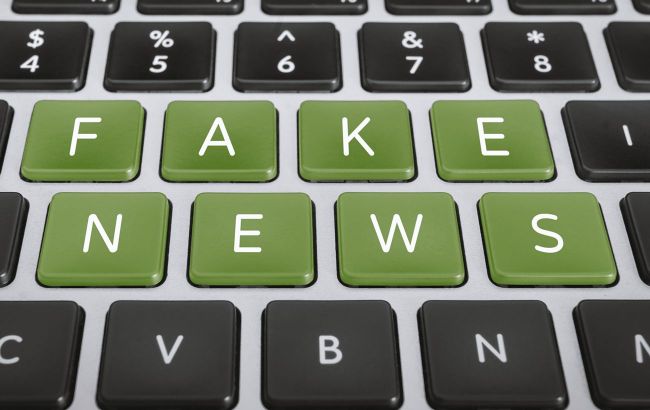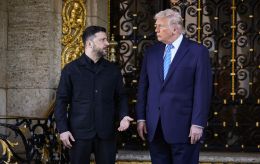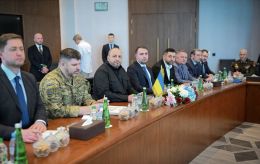Latvia blocked number of websites for spreading Russian propaganda
 The Latvian authorities have blocked access to a number of pro-Russian websites (photo: Getty Images)
The Latvian authorities have blocked access to a number of pro-Russian websites (photo: Getty Images)
The National Electronic Media Council (NEPLP) of Latvia has blocked access to nine websites in the country that spread aggressive Russian propaganda and fake information about Russia's war against Ukraine, according to Delfi.
Access to the websites "mk-pskov.ru", "life.ru", "www.pnp.ru", "news-front.su", "russkie.org", "ont.by", "www.sb.by", "council.gov.ru", and "x-true.info" has been blocked. Users attempting to access these pages will now be redirected to an informational message on "nelegalssaturs.lv".
The decision is based on the conclusions of another competent state administration and the Council itself that these websites are used to support aggressive Russian propaganda. The Latvian authorities have concluded that the websites disseminate distorted and false information about the war initiated by Russia against Ukraine, as well as the war crimes committed by Russia to justify them. Additionally, these websites spread hostility and information that discredits the Latvian state and the North Atlantic Treaty Organization (NATO).
"These websites propagate a narrative that blames the West and NATO for the situation in Ukraine, while Russia only wants to ensure peace worldwide. They disseminate significantly distorted and false current information about events in Latvia and the world, discredit NATO's ability to protect any member country of the Alliance, and justify Russia's invasion of Ukraine," the statement said.
The National Electronic Media Council emphasizes that the dissemination of such information deliberately deceives the public about Russia's true goals in Ukraine, incites the public against the Ukrainian state and people, and deliberately distorts information about the use of the Russian language in Latvia and the Baltic countries, negatively affecting peaceful coexistence among different societal groups, particularly in Latvia. It also creates risks of various negative provocations that pose a significant threat to the security of the Latvian state, public order, and safety.
As for the assessment of freedom of expression restrictions, the NEPLP believes that the public has the right to receive truthful information. However, the Council considers that it is not in the public interest to receive information that threatens national or public security or the territorial integrity of the country, as well as information that incites hatred and deliberately deceives.
"Receiving such information can cause alarm and fear among part of the population for the existence of their country and their future, for the future of their families, and can also divide society. In addition, this information also contains disinformation and can lead to the emergence and activation of organizations that support radical ideas, as well as their opponents, which does not exclude the possibility of protests by various groups within countries and, thus, undoubtedly affects public order and the safety of people, which significantly and unequivocally affects the security of the country as a whole," the NEPLP statement said.
NEPLP noted that the harm caused would be significantly less if websites disseminating information that threatens national security were unavailable in Latvia, or if access to this information were significantly restricted.
According to the Council, the tool provided by the Law on Electronic Communications to restrict the right to freedom of expression - the right to decide on restricting access to websites available in Latvia that disseminate content that threatens or may threaten national security or public order and safety - is considered an appropriate means to achieve a lawful goal.
Anti-Russian measures in Latvia
Recently, the Latvian Migration Department announced its intention to deport several hundred Russians who do not have the right to stay in the country.
Last year, Latvia began legal proceedings against 16 journalists who collaborated with Russian media outlets.
Earlier, Latvia blocked a Russian website due to the threat to the sovereignty of Ukraine.

